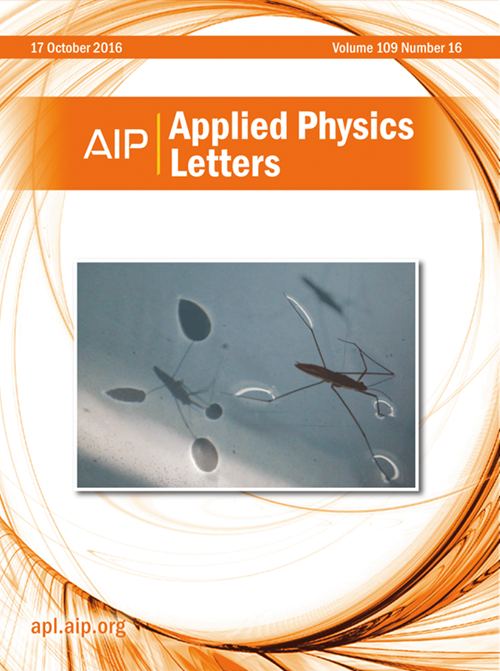在活体人体头骨中进行经颅聚焦的声全息透镜
IF 3.5
2区 物理与天体物理
Q2 PHYSICS, APPLIED
引用次数: 0
摘要
长期以来,颅骨一直是经颅超声治疗和神经调控的障碍,会导致波形失真和焦点错位。在这项工作中,我们提出了一种用于体外人类头骨的双焦点经颅超声聚焦方法,以消除这一障碍,并通过使用一个放置在枕骨外的 2 MHz 单元素换能器和一个 3D 打印声全息透镜进行了演示。实验结果表明,所提出的方法可通过人类头骨实现高精度的单聚焦和双聚焦超声聚焦,在水中的最大目标注册误差小于一个波长。目标内比率从 72% 到 92%,平均为 80.7%;目标外比率从 0% 到 43.9%,平均为 18.3%。此外,焦斑基本上没有头骨引起的畸变,与理想焦斑非常接近,并保持清晰可辨的圆形焦斑形状。该方法为后续临床研究应用开辟了道路,并有可能实现经颅超声治疗和神经调控。本文章由计算机程序翻译,如有差异,请以英文原文为准。
Acoustic holographic lenses for transcranial focusing in an ex vivo human skull
The skull has long been an obstacle for transcranial ultrasound therapy and neuromodulation, leading to waveform distortion and focal points misalignment. In this work, we propose a dual-focus transcranial ultrasound focusing method for ex vivo human skulls to bridge this barrier, which is demonstrated by using a 2 MHz single-element transducer placed outside the occipital bone, coupled to a 3D-printed acoustic holographic lens. The experimental results show that the proposed method allows for achieving high-precision single- and dual-focus ultrasound focusing through human skulls with the maximum target registration error less than one wavelength in water. The in-target ratio spans a range from 72% to 92%, with an average of 80.7%, while the out-of-target ratio varies from 0% to 43.9%, with an average of 18.3%. Additionally, the focal spots are substantially free of the skull-induced distortion, closely matching the ideal ones, and maintain a clearly identifiable circular focus shape. The method opens up a route toward the subsequent applications in clinical research and may enable to implement transcranial ultrasound therapy and neuromodulation.
求助全文
通过发布文献求助,成功后即可免费获取论文全文。
去求助
来源期刊

Applied Physics Letters
物理-物理:应用
CiteScore
6.40
自引率
10.00%
发文量
1821
审稿时长
1.6 months
期刊介绍:
Applied Physics Letters (APL) features concise, up-to-date reports on significant new findings in applied physics. Emphasizing rapid dissemination of key data and new physical insights, APL offers prompt publication of new experimental and theoretical papers reporting applications of physics phenomena to all branches of science, engineering, and modern technology.
In addition to regular articles, the journal also publishes invited Fast Track, Perspectives, and in-depth Editorials which report on cutting-edge areas in applied physics.
APL Perspectives are forward-looking invited letters which highlight recent developments or discoveries. Emphasis is placed on very recent developments, potentially disruptive technologies, open questions and possible solutions. They also include a mini-roadmap detailing where the community should direct efforts in order for the phenomena to be viable for application and the challenges associated with meeting that performance threshold. Perspectives are characterized by personal viewpoints and opinions of recognized experts in the field.
Fast Track articles are invited original research articles that report results that are particularly novel and important or provide a significant advancement in an emerging field. Because of the urgency and scientific importance of the work, the peer review process is accelerated. If, during the review process, it becomes apparent that the paper does not meet the Fast Track criterion, it is returned to a normal track.
 求助内容:
求助内容: 应助结果提醒方式:
应助结果提醒方式:


